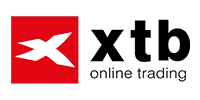Table Of Contents
- Best Gold Brokers in 2026
- Best Gold Brokers in 2026
- Top Tips for Choosing the Best Gold Brokers
- What Are the Different Ways to Invest in Gold?
- Gold bullion:
- Spot gold:
- Gold futures:
- Gold ETFs (Exchange-traded funds):
- Gold CFDs (Contracts for difference):
- Gold options:
- How to Open a Trading Account to Start Trading Gold?
- How Much Do Beginners Need to Start to Trade?
- How to Start Learning about Gold Trading
- Can You Trade Without Prior Experience?
- Differences Between Physical Gold Trading and CFD Gold Trading
- Ownership:
- Liquidity:
- Leverage:
- Costs and fees:
- How to Buy a Lot of Gold with Lower Capital?
- How to Choose the Best Gold Broker
- Commissions and fees
- Withdrawal and deposit fees:
- Trading platform
- Leverage
- Stop outs
- Tradable assets and instruments
- Customer service
- Withdrawals and deposits
- What Can Affect the Gold Price?
- Supply and demand:
- Geopolitical events:
- Strength of the US Dollar:
- What Is the Relationship Between Gold and Major Currencies?
- Gold and the USD:
- Gold and the AUD:
- Gold and the NZD:
- The Risks of Trading Gold
- Price volatility:
- Liquidity risk:
- Leverage risk:
- Currency risk:
- What to Avoid when Choosing a Gold Trading Broker?
- Which Gold Broker Has the Best Platform?
- Which Gold Broker Charges the Lowest Fees?
- Which is the Best Gold Broker for the Most CFDs?
- Which Gold Broker Offers the Most Assets?
- Which is the Best Gold Broker for Professionals?
- How to Avoid Gold CFD Brokers Scams
- Who Is Arincen and What Do We Do?
- Ask Other Traders on Our Network
- The Bottom Line
- Arincen’s Review Methodology
How to Trade Gold, Best Gold (XAUUSD) Brokers
With many years of meticulous FOREX broker testing, Arincen stands out as a voice of authority. Our analyses, shaped by exhaustive data collection, are trusted by many. Each year, we gather 120 data points from more than 100 brokers. Our team of more than 20 people collaborate extensively to produce high-quality broker reviews like this one. For a detailed explanation of how we test brokers, navigate to the bottom of this article.
Note: We earn money by selling ads, placements, or through partnerships with some companies we have agreements with, learn more.
Gold has been a symbol of wealth and a store of value for thousands of years. It’s often referred to as the “yellow metal” and as such, the best gold brokers have offered a hedge against inflation, political unrest, and economic instability. This is true even today. For this reason, gold trading for beginners is a sought-after topic.
Gold can be traded in many different ways, as we will show you later in this article. As with all investments, if you trade gold online, you are exposing yourself to certain risks, but it also offers a good opportunity to capitalize on price fluctuations in one of the world's most respected commodities. Selecting the best gold trading platform with which to work is crucial. As you read this article, you will come to know that XAUUSD represents the price of one troy ounce of gold in terms of the US dollar. We will show you how to trade gold online and tell you about the best XAUUSD brokers around.
Best Gold Brokers in 2026
| Company Name | Regulations | Minimum Deposit | Main Branch | |
|---|---|---|---|---|

ICM capital |
FCA | $200 | London | |
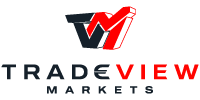
Tradeview |
SCA | $0 | New York, United States of America | |
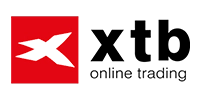
XTB |
FCA | 0$ | United Kingdom | |

IG Group |
FCA | $250 | United Kingdom |

| Company Name | ICM capital |
| Regulations | FCA |
| Minimum Deposit | $200 |
| Main Branch | London |

| Company Name | Tradeview |
| Regulations | SCA |
| Minimum Deposit | $0 |
| Main Branch | New York, United States of America |

| Company Name | XTB |
| Regulations | FCA |
| Minimum Deposit | 0$ |
| Main Branch | United Kingdom |

| Company Name | IG Group |
| Regulations | FCA |
| Minimum Deposit | $250 |
| Main Branch | United Kingdom |
Best Gold Brokers in 2026
With so many choices out there, it can be a hard job to choose the right broker. In this case, we've done the work for you. Here is a summary of each broker according to specific criteria, along with their pros and cons
ICM - Capital 91.10: Best Deposit and Withdrawal Broker
Tradeview - 90.00: Trusted broker that offers very low trading costs as well as comprehensive financial literacy materials for its clients.
XTB - 85.55: Best Customer Service Broker
IG - 85.45: Best Regulations Broker plus Convenient Platform
Saxo Bank - 80.09: Excellent Private Trading Platform
CMC Markets - 80.07: More than 9,000 Assets
ThinkMarkets - 80.05: Aimed at the Audience of Traders

ICM capital
ICM Capital is a UK-origin broker that operates worldwide. The firm provides access to diverse trading products, including FOREX, commodities, futures, and indices. ICM offers a secure and efficient trading environment by combining advanced technology with deep liquidity. The company prides itself on delivering high liquidity, tight spreads, mobile trading, and advanced technical analysis.
Why we picked ICM Capital
For its robust regulatory framework and global oversight. Its presence across multiple jurisdictions demonstrates a genuine commitment to investor protection. This foundation makes it a dependable choice for both new and seasoned traders.
| Broker Evaluation | 9.11 |
| Regulations | FCA |
| Minimum Deposit | $200 |
| Islamic Account | yes |
| Payment Methods | Bank transfer, credit card, Electronic Banks, Crypto |
| Main Branch | London |
| Customer Service | Market Opening Hours |
| Demo Account | Yes |
| Trading Platforms | MT4, MT5, C TRADER, Web Platform |
Pros
-
Segregated client funds.
-
Regulated by the UK’s FCA.
-
Long trading history from 2009.
-
More than 300,000 traders, showing trust.
-
Decent funding options.
-
No swaps.
-
MetaTrader4 (MT4) desktop and mobile download.
-
Competitive spreads
-
ECN spreads starting from zero pips.
-
Fast execution and no-requotes.
Cons
-
No proprietary platform.
-
No US services.
-
Limited cryptocurrency offerings.
-
Inactivity fees which deter casual traders.

Tradeview
Tradeview Markets, the parent company of Tradeview Forex, was established in 2004 and is headquartered in the Cayman Islands. It is committed to offering a broad and accessible trading environment through ECN trading with direct access to dozens of banks and prime liquidity providers, ensuring tight spreads. The broker offers access to a wide range of financial instruments, including FOREX, indices, stocks, cryptocurrencies, and commodities.
Why we chose Tradeview
Our choice was influenced by this broker’s transparent fee structure and competitive pricing, with low spreads and clear cost disclosures. Traders benefit from predictable pricing without hidden charges. Cost efficiency is a crucial advantage in high-frequency and active trading environments.
| Broker Evaluation | 10.00 |
| Regulations | SCA |
| Minimum Deposit | $0 |
| Islamic Account | Yes |
| Payment Methods | Bank Transfer, Credit Cards, Crypto, Electronic banks, local deposits |
| Main Branch | New York, United States of America |
| Customer Service | |
| Demo Account | Yes |
| Trading Platforms | Metatrader 4, Metatrader 5, cTrader, API/FIX |
Pros
-
Variety of trading platforms, such as MT4, MT5, cTrader, and Currenex, catering to different trading preferences and strategies.
-
Provides ECN trading through its innovative Liquidity Connector®, granting direct access to over 50 banks and liquidity providers. Offers tight spreads starting from 0 pips.
-
A low minimum deposit of only $0 is required to start trading, making it accessible to a wide range of traders.
-
Offers a broad range of financial instruments, including FOREX, indices, stocks, cryptocurrencies, and commodities, thus catering to diverse trading interests.
-
Offers educational materials and a demo account, suitable for both beginners and experienced traders looking to refine their strategies.
-
Supports automated trading through the use of Expert Advisors (EA) on MT4 and MT5 platforms.
-
Regulated by CIMA, MFSA, and will soon be regulated by the UK’s Financial Conduct Authority (FCA).
-
Offers global customer service in multiple languages, catering to international traders.
-
Offers competitive leverage up to 400:1.
-
Charges no fees for deposits, making it cost-effective for traders to fund their accounts.
Cons
-
While regulated by CIMA and the MFSA, the broker is still in the final stages of becoming regulated by the tier-one FCA.
-
This means, unfortunately, that the broker currently has no way of offering compensation to affected traders if the broker goes bust. Of course, once FCA regulation is obtained, it will be mandatory for the broker to be part of the Financial Services Compensation Scheme (FSCS) where you could be entitled to compensation of up to £85,000.
-
Trades on the Innovative Liquidity Connector® account are subject to commission charges, which may add to trading costs.
-
Lacks a dedicated mobile app, relying instead on the mobile versions of its available trading platforms.
-
While offering high leverage up to 400:1 can be an advantage, it also introduces significant risks, especially for new traders.

XTB
XTB is a well-regarded broker known for its low costs, extensive asset selection, and advanced trading tools. Founded in 2002 in Poland, it has created a proprietary xStation 5 platform that offers robust features like real-time performance stats, sentiment analysis, and heat mapping. XTB's educational resources are comprehensive, catering to all skill levels with video tutorials, guides, and an accessible Trading Academy. XTB is an excellent choice for cost-conscious traders looking for diverse investment options and high-quality support.
Why we chose XTB
We chose this broker for its responsive and multilingual customer support, available across channels when assistance is needed most. Quick, professional responses reduce friction and build trader confidence. Support quality often reflects overall service reliability.
| Broker Evaluation | 8.55 |
| Regulations | FCA |
| Minimum Deposit | 0$ |
| Islamic Account | yes |
| Payment Methods | Bank transfer, Credit Card, Electronic Banks |
| Main Branch | United Kingdom |
| Customer Service | Market Opening Hours |
| Demo Account | Yes |
| Trading Platforms | MT4, xStation |
Pros
-
20-year history of operation.
-
Regulated by the FCA (UK) and CySEC in Cyprus.
-
Globally recognized, having won multiple awards.
-
Some of the lowest FOREX spreads in the market.
-
Offers protection for client accounts.
-
Emphasis on customer service.
-
Excellent support, as well as learning and research tools.
Cons
-
Does not accept US clients.
-
Number of instruments offered is average-sized.
-
No GSLO.
-
No back-testing or automated trading capabilities.
-
No social trading.

IG Group
IG Group is a highly regarded publicly traded broker that is licensed by 10 regulatory bodies, including the FCA, in its home base of the UK. It offers more than 17,000 financial assets to trade, including currencies, commodities, regular stocks, contracts for difference stocks, ETFs, indices, and cryptocurrencies. Further, it has its own state-of-the-art trading platform and offers a relatively low spread.
Why we chose IG Group
For its clear commitment to transparency and fair dealing, with open terms and client-friendly policies. Honest reporting builds trust and fosters long-term client relationships. We value brokers who prioritise clarity over complexity.
| Broker Evaluation | 8.54 |
| Regulations | FCA |
| Minimum Deposit | $250 |
| Islamic Account | yes |
| Payment Methods | Bank transfer - credit card - Electronic Banks |
| Main Branch | United Kingdom |
| Customer Service | Market Opening Hours |
| Demo Account | Yes |
| Trading Platforms | IG Trading, MT4,ProRealTime,L2 Dealer |
Pros
-
Intuitive mobile and tablet platforms.
-
Low spread costs.
-
Client education offering extensive research materials.
-
Regulated by many reputable authorities.
-
UK and EU clients get negative balance protection.
-
Financially stable and publicly-listed.
-
Rapid response to customer service queries.
-
Extensive range of trading assets.
-
Powerful social trading community.
Cons
-
U.S. clients are limited to FOREX trading only.
-
U.S. clients do not receive negative balance protection.
-
IG CFD prices can be high by industry standards.
-
Limited product portfolio of only CFD and options in many countries.
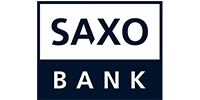
SAXO BANK
Saxo Bank is a well-established, low-risk broker based in Denmark that offers a wide range of trading services to sophisticated traders, institutions, and professional investors. It operates under strict regulatory oversight, ensuring a secure trading environment. The broker provides advanced trading platforms, including SaxoTraderPRO and SaxoTraderGO, catering to high-volume and professional traders with competitive spreads and access to over 71,000 instruments.
Why we chose Saxo Bank
For its comprehensive product range, spanning forex, commodities, indices, and popular CFDs. Such variety allows traders to build diversified portfolios within a single account. This breadth of markets supports evolving strategies and risk preferences.
| Broker Evaluation | 8.09 |
| Regulations | FCA |
| Minimum Deposit | $0 |
| Islamic Account | No |
| Payment Methods | Bank transfer, Credit Card |
| Main Branch | Copenhagen, Denmark |
| Customer Service | Market Opening Hours |
| Demo Account | Yes |
| Trading Platforms | SaxoTrader |
Pros
-
Extensive range of offerings.
-
Offers portfolio-based margin trading for pros.
-
Regulated by top regulators.
-
Excellent trading platforms.
-
Diverse account types.
-
Among the industry’s best research tools.
-
Offers protection for client accounts.
-
No inactivity fee.
-
No platform fees.
-
No minimum funding for entry-level accounts.
Cons
-
Some bonds, options, and futures fees are high.
-
With so many assets, fees can be confusing.
-
High minimum deposit for Platinum and VIP accounts.
-
Does not accept US clients.
-
No MT4 for traders who are used to the platform.
-
No GSLO.
-
No Islamic accounts.

CMC MARKETS
CMC Markets is a global CFD and FOREX broker established in 1989. It is regulated by several authorities globally. The company delivers a formidable offering for traders thanks to excellent pricing, nearly 12,000 tradable instruments, and its proprietary Next Generation trading platform. The platform comes packed with quality research, innovative trading tools, and powerful charting. CMC provides traders with access to an extensive range of CFDs and spread betting across several asset classes.
Why we chose CMC Markets
This broker’s risk management tools and flexible order types stood out to us, enabling traders to tailor positions according to market conditions. Features like stop losses, take profits, and conditional orders provide strategic control. These tools are essential for disciplined trading.
| Broker Evaluation | 8.07 |
| Regulations | FCA |
| Minimum Deposit | 0$ |
| Islamic Account | No |
| Payment Methods | Bank transfer, Credit Card, Electronic Banks |
| Main Branch | United Kingdom |
| Customer Service | Market Opening Hours |
| Demo Account | Yes |
| Trading Platforms | Proprietary Platform, MT4, Web Platform |
Pros
-
Extensive range of offerings.
-
Regulated by the FCA (UK) and other top regulators.
-
Low FOREX fees.
-
Emphasis on education and customer service.
-
Great Web and mobile platforms.
-
Offers protection for client accounts.
-
Research amenities are industry leading.
Cons
-
Does not accept US clients.
-
High CFD spreads for certain indices.
-
It only offers CFD trading, so traders cannot own the underlying asset.
-
Does not support deposits and withdrawals through electronic payments.

think markets
ThinkMarkets is a multi-regulated broker with offices around the globe. The firm is primarily a CFD broker, allowing you to trade across 4,000 instruments in FOREX, futures, commodities, indices, ETFs, crypto, and stocks. With an emphasis on superior customer service, ThinkMarkets maintains round-the-clock support in several languages. It provides different trading accounts suited to individual traders' needs. This includes zero-commission accounts and access to trading guides, analysis tools, and industry news feeds.
Why we chose ThinkMarkets
We selected this broker for its fast and flexible funding options, including bank transfers and card payments. Smooth deposits and withdrawals reduce administrative delays and support efficient capital management. Accessibility of funds is an often-overlooked but essential feature.
| Broker Evaluation | 8.05 |
| Regulations | FCA |
| Minimum Deposit | $0 |
| Islamic Account | Yes |
| Payment Methods | Bank transfer - credit card - Electronic Banks - Crypto |
| Main Branch | Australia |
| Customer Service | Market Opening Hours |
| Demo Account | Yes |
| Trading Platforms | Proprietary Platform, Web Platform, MT4, MT5 |
Pros
-
Beginner assistance is offered through round-the-clock channels.
-
Spreads are as low as 0.0 pips.
-
Round-the-clock expert customer service.
-
CFD shares and indices come at no extra fee.
-
Zero broker fees for FOREX trading.
-
Technical analysis and quality market information.
Cons
-
No binary options are offered.
-
Commissions are charged for two account types.
-
Range of tradeable assets is not as wide as some competitors.
-
No US clients allowed.
There is a high degree of risk involved in trading securities like FOREX, or CFDs, which are highly complex instruments. As a trader, you could be exposed to excessive leverage, questionable broker tactics, market volatility, and limited regulatory protection. Despite your best trading techniques and risk management strategies, your efforts may not be profitable, and you could suffer losses.
Top Tips for Choosing the Best Gold Brokers
- The broker must be regulated by a top-tier regulator, this could be a local broker or an international broker
- The broker must have a competitive fee schedule
- The broker must offer a wide array of financial assets to trade
- The broker must have a responsive customer service team
- The broker should have a detailed research and educational offering
What Are the Different Ways to Invest in Gold?
Gold is a versatile asset. Depending on your needs and your strategy, you can invest in gold in a few different ways:
Gold bullion:
Gold bullion is the name for physical gold in the form of bars or coins. This traditional way of investing in gold has been around for many centuries and exists even today. When you buy gold bullion, you own a tangible asset that has intrinsic value. This tangible investment cannot default like some electronic investments, and once you hold the physical gold bars or coins, you have its wealth for as long as gold retains its value.
Spot gold:
The spot gold market deals with the immediate buying or selling of gold at current prices. The "spot" refers to the current market price. Trades are normally settled "on the spot," as opposed to a date in the future. If you were to invest in the spot gold market, you wouldn’t take physical delivery of the metal. Rather, you merely own a claim to the gold.
Gold futures:
Gold futures are standardized contracts where the buyer agrees to purchase, and the seller agrees to deliver, a specified amount of gold at an agreed-upon price on a set date in the future. You can enter into one of these contracts on a futures exchange. You can trade gold futures on leverage, meaning you could make a lot of money or lose a lot of money.
Gold ETFs (Exchange-traded funds):
Gold ETFs are investment funds traded on stock exchanges that aim to track the price of gold. Instead of owning physical gold, you merely own a share of the ETF. These shares represent a portion of the fund's gold holdings. Gold ETFs are known as a more liquid and accessible means of investing in gold. Trading this way is similar to selling shares because you can sell your gold shares just like you would a company’s share.
Gold CFDs (Contracts for difference):
Gold CFDs allow you to speculate on the price movements of gold without actually owning the physical metal. A CFD is a contract between you (the buyer) and a seller where the seller pays you the difference between the current value of gold and its value at contract time. If the difference is negative, then you own the seller. If it’s positive, you get paid.
Gold options:
Gold options provide investors the right, but not the obligation, to buy or sell gold at a predetermined price on or before a specified date. They offer flexibility and can be used for both speculation and hedging purposes. You should know that options trading can be complex. The value of gold options is affected by factors such as the price of gold, time remaining until expiration, and volatility.
Each method of investing or trading in gold has its own pros and cons. Before investing in gold, you should always carefully evaluate your financial goals and risk tolerance.Difference between CFDs and Futures:A futures contract remains valid up until its expiration date. In contrast, Contracts for Difference (CFDs) do not have a set expiration date, allowing traders to maintain an open position for an indefinite period. Additionally, CFDs do not have predetermined prices; instead, they are traded based on fluctuating buy and sell prices.

How to Open a Trading Account to Start Trading Gold?
How Much Do Beginners Need to Start to Trade?
You don’t need much to get started. Some of the best brokers allow you to start trading with a manageable amount under $100. Of course, you need to capitalize your account with at least some money that will allow you to place trades. The amount is really up to you. However, it is recommended that you start by placing small trades to get to grips with the practice of trading as well as your broker’s website before you move on to placing trades with more money.
How to Start Learning about Gold Trading
A trading website like en.arincen.com is a great place to start. We have a large list of curated articles that can give you all the information you need on common gold trading terms, like pips, spreads, leverage, and support and resistance. Additionally, once on our website, you will find helpful video courses that cover the basics of gold trading. With this range of knowledge, you will be well on your way to trading success.
Remember also that your broker will normally have developed a detailed education and research repository themselves. That is also a good place to bolster your gold knowledge, with the extra benefit that your broker’s information will be slanted toward their own platform and resources, which makes it doubly useful.
Tip: Invest in Your knowledge
For every aspiring retail trader, knowledge is key to a successful trading journey. We invite you to delve into Arincen's goldmine of insights, strategies, and expert analyses. Whether you're just embarking on your trading venture or trying to level up your trading game, our resources are designed to give you all the information you need. Visit our educational resources here.
Can You Trade Without Prior Experience?
It is always advisable to keep expanding your experience in the world of trading. The Arincen network was created for those who don’t have enough experience to trade on their own. This is because you can follow the experts on our network and apply their signals and strategies in your trading account with ease, and you can review the statistics of the experts and review their history to ensure they are good for trading the assets you want. For example, if you prefer to trade only in gold or any other group of assets, you can review the best gold experts and traders in the network.
Tip for those who have no experience
We believe that a solid foundation in education and research is essential for every successful trader. That’s why we’ve created a set of resources specifically for you. Our comprehensive articles provide an understanding of the basics, while our videos offer insights from industry insiders. Stay updated with the latest developments in the market through our newsfeed, signals, and detailed analytics.
Differences Between Physical Gold Trading and CFD Gold Trading
Physical gold trading and CFD gold trading are two different methods of trading on the gold market. Each has its unique features. Here's a breakdown:
Ownership:
Physical Gold: When you buy physical gold, you own a tangible asset.
CFD Gold: When trading gold through CFDs, you do not own the actual gold. Instead, you're entering a contract based on the future price movement of gold.
Liquidity:
Physical Gold: Selling physical gold might require verification of its authenticity and quality, so it’s not an instant sell.
CFD Gold: CFDs offer high liquidity. You can quickly enter or exit positions, often within seconds.
Leverage:
Physical Gold: Generally, when you buy physical gold, you pay the full price upfront.
CFD Gold: You can perform leveraged trading on the gold market. This means you can control a large position with a relatively small amount of capital. Beware of the risks.
Costs and fees:
Physical Gold: There could be premiums and transportation costs when buying physical gold. When selling, there might be testing costs associated with verifying the gold's authenticity.
CFD Gold: CFDs typically involve paying a spread. Depending on the broker, there might also be overnight financing fees or rollover costs.
While both physical gold trading and CFD gold trading provide ways to engage with the gold market, they cater to different needs and risk profiles.
How to Buy a Lot of Gold with Lower Capital?
Tip: Invest in Your knowledge
For every aspiring retail trader, knowledge is key to a successful trading journey. We invite you to delve into Arincen's goldmine of insights, strategies, and expert analyses. Whether you're just embarking on your trading venture or trying to level up your trading game, our resources are designed to give you all the information you need. Visit our educational resources here.
How to Choose the Best Gold Broker
When considering a broker for trading or investing in gold, it's important to evaluate their features closely. This will give you the best chance of an uninterrupted trading career because once you start trading, you ideally want to stick with your broker and not go back. Here's a checklist of what to pay attention to:
Regulation and Licensing:
Ensure the broker is regulated by a reputable authority. Gold brokers must be regulated by the same regulators that regulate other financial assets, such as FOREX, crypto, and commodities. If you want to read more about one such top-tier broker, the UK’s Financial Conduct Authority (FCA), check our article here. Other excellent brokers are the Commodity Futures Trading Commission (CFTC) in the US, the Australian Securities and Investments Commission (ASIC) in Australia. Different jurisdictions have varying levels of oversight and protection.
Be sure to check if your gold broker offers investor protection. Some regulatory bodies offer compensation schemes that protect investors' funds in the event of broker insolvency. For instance, the FCA provides the Financial Services Compensation Scheme (FSCS) in the UK. Also be sure to ask the broker whether client funds are kept separate from the broker's operational funds. This offers additional protection for traders like you.
Choose a broker under the watch of a trusted regulatory authority who is renowned for their rigorous oversight. There's no obligation to opt for an overseas regulator; reputable brokers also operate within your own jurisdiction. To confirm if your broker is registered with a regulator, navigate to the regulator’s official website.
Commissions and fees
Trading fees can be tricky to keep track of, so it's important to compare them with industry standards. Here are some fees of which to be aware:
Spreads:
There are two main kinds of spread, one is fixed and the other is variable. A first step in gold trading is identifying the spread differential, defined as the difference between the bid (sell) price and the ask (buy) price of gold. Here’s a detailed explainer on spreads.
Commission:
This is the service charge that brokers require for carrying out transactions on behalf of their clients.
Rollover fees: When you leave a trade open overnight, the broker normally charges a rollover fee for the facility of holding your trade open for that period. This is because they assume the risk of the market changing adversely.
Withdrawal and deposit fees:
Some platforms might charge fees for depositing or withdrawing funds. Pay attention to this. It's important to know these and any associated limits or conditions.
Subscription or inactivity fees:
Certain platforms have monthly charges or fees for inactive accounts. Ensure you're aware of these potential costs.
To assess trading costs accurately, the Arincen research team examined broker pricing across multiple sources, combining published fee schedules with observed trading conditions. Our analysis focuses on spreads, commissions, and additional charges that impact traders in practice. You can see the consolidated findings in the table that follows.







| Spread | Commission | Swap | Islamic Account | |
| Currencies | Starting from 1.3 Pips | 0$ | No | Available |
| Stocks | Starting from 18 Pips | 0$ | Yes | Unavailable |
| Commodities | Starting from 2.3 Pips | 0$ | No | Available |
| Indices | Starting from 4 Pips | 0$ | Yes | Unavailable |
Trading platform
Evaluate the user-friendliness and reliability of your broker’s trading platform. Be on the lookout for advanced charting tools, technical indicators, and real-time price feeds for gold.
Gold products offered:
Look into the variety of gold-related products they offer, such as spot gold, gold futures, gold CFDs, gold ETFs, or gold options.
Order types:
Ensure the broker offers a variety of order types, such as market, limit, stop, and trailing stop orders, which can help your risk-management efforts.
Liquidity:
Brokers connected to liquid markets will provide more efficient trade execution, reducing the risk of slippage, which is when a deal goes through at a different price than when you placed the trade. This happens in low-liquidity environments.
Education and research:
A quality broker often provides educational resources, such as webinars, articles and tutorials, to help traders make informed decisions.
Reputation:
Look for online reviews and feedback from other traders or independent websites. This is where you will often get the scoop on whether the broker engages in such fair trade practices as efficient trade execution and no manipulation of market prices.
Demo account:
A broker offering a demo or practice account allows you to test its platform and your strategies with virtual money before committing real funds.
Tip for those who have no experience
We believe that a solid foundation in education and research is essential for every successful trader. That’s why we’ve created a set of resources specifically for you. Our comprehensive articles provide an understanding of the basics, while our videos offer insights from industry insiders. Stay updated with the latest developments in the market through our newsfeed, signals, and detailed analytics.
Leverage
Different regulators have different guiding policies in leverage. Key regulators have implemented specific rules to limit the leverage offered to retail traders as a means of consumer protection.
Here are the leverage rules for gold CFDs according to some key regulators:
European Securities and Markets Authority (ESMA)
ESMA caps the leverage for gold CFDs at 20:1. This means that traders need to have a minimum of 5% margin of the total trade value.
CFTC
In the United States, CFD trading isn't permitted for retail traders. However, for related products like gold futures, there are specific margin requirements set by exchanges and overseen by the CFTC.
ASIC
ASIC has recently implemented rules capping the leverage for gold CFDs for retail traders at 20:1, aligning with ESMA's restrictions.
FCA
The FCA has adopted rules similar to ESMA, capping leverage for gold CFDs at 20:1 for retail traders.
As we can see, responsible regulators closely monitor leverage levels. Leverage is a double-edged sword because you can make a lot of money, but you can just as easily become financially ruined!
Similarly with stopouts, many major regulators offer negative balance protection. This is important as your open positions are automatically closed by the broker due to insufficient margin in the account. This mechanism protects you from accruing negative balances and owing money to the broker.
Stop outs
In the world of trading, "stop out" is a term with which you should be familiar. It's the point where your broker automatically closes some or all of your active positions to prevent your account from diving into negative territory. The stop-out level is usually defined as a percentage, representing the margin level at which your broker starts shutting down your open trades.
Let's break down the percentages:
Stop out of 0%:
Your broker won't close any of your positions, even if your margin level reaches rock bottom. This is because some brokers allow you to end up in the red, which means you might owe them money if your trades keep losing.
Stop out of 50%:
Once your equity dwindles to half of your used margin, the stop-out alarm goes off. Your broker steps in and starts closing your trades, beginning with those least profitable. This continues until your margin level bounces back above the stop-out level.
Stop out of 100%:
When your margin level hits 100%, your broker takes the drastic step of automatically closing all your open positions. In some setups where the broker separates margin-call and stop-out levels, the margin call happens at 100% and the stop-out at 50%. If your margin level plunges to 50%, your trading platform springs into action with a stop-out, closing your trade at the market price.
Keep in mind that the specific percentage and the order in which positions get closed can vary from broker to broker. So, it's crucial for traders to know their broker's stop-out policy. It's worth noting that while stop-out measures are designed to shield traders from going into the red, they can also result in substantial losses, especially in volatile markets where positions are swiftly closed automatically, especially if the market suddenly reverses post-stop out. That's why you should always employ protective strategies like setting stop-loss orders and avoiding excessive leverage.
Tradable assets and instruments
Retail trading offers a diverse range of financial instruments, each with its own set of opportunities and challenges. We understand you are interested in gold trading, but here are some other common tradable assets and instruments:
FOREX
With the largest trading volume globally, the FOREX market allows traders to speculate on the future movements of currency prices, trading pairs like EUR/USD, GBP/JPY, and many more.
Commodities
Whether it's precious metals like gold and silver, or energy commodities like oil and natural gas, commodities trading offers a chance to profit from the tangible assets that drive global economies.
Equities or Stocks
These represent ownership in a company and constitute one of the most popular avenues for retail traders, given their potential for substantial returns and the thrill of being a part of the corporate world.
Indices
These are baskets of stocks representing a particular market or sector, like the S&P 500 or the Nasdaq, giving traders exposure to broader market movements.
Cryptocurrencies
Digital coins like Bitcoin, Ethereum, and countless altcoins offer both high rewards and volatility.
Recommended Brokers
As part of our evaluation process, the Arincen team gathered and cross-checked broker pricing from official documentation and live trading environments. This approach allowed us to compare spreads, commissions, and fees under actual market conditions. The breakdown of our findings is presented in the table that follows.
| Brokers | Currency pairs | Stocks | Indices | Commodities | Crypto | ETFs |
| Tradview | 80 Pairs | 5000 Shares | 10 Indices | 10 Commodity | 30 Coins | Unavailable |
| ICM Capital | 67 Pairs | 89 Shares | 17 Indices | 12 Commodity | 6 Coins | Unavailable |
| XTB | 57 Pairs | 1848 Shares | 36 Indices | 22 Commodity | 22 Coins | 135 ETFs |
| IG | 81 Pairs | 21714 Shares | 49 Indices | 39 Commodity | 11 Coins | 12858 ETFs |
| Saxo Bank | 320 Pairs | 22000 Shares | 49 Indices | 39 Commodity | 9 Coins | 6700 ETFs |
| CMC Markets | 330 Pairs | 8000 Shares | 80 Indices | 100 Commodity | 18 Coins | 200 ETFs |
| Think Markets | 46 Pairs | 3750 Shares | 15 Indices | 11 Commodity | 21 Coins | 350 ETFs |
Customer service
As timing is key to gold trading, you must pick a brokerage firm that can provide good customer support around the clock. This most notably includes the company representatives being easy to reach, fast, and polite, which in turn will spare you from having to worry about problems later. The best gold brokers will be able to provide you with the following:
Quick resolution of issues
Educational support
Assistance with queries during volatile markets
Account security
Customized advice (although not all customer service desks offer this)
Technical assistance
Regulatory compliance queries
Based on in-house analysis by the Arincen team, we reviewed pricing data from both official broker websites and live market conditions. This included spreads, commissions, and trading fees observed in real use. The results of that comparison are summarized in the table below.







| Live Chat | Phone | |||
| Available | Available | Available | Available | Available |
| Quick response | Quick response | Fast | Fast | Fast |
Withdrawals and deposits
Ideally, the payment deposit and withdrawal process among the best gold brokers should be straightforward and convenient. If you have chosen a broker from a developed nation with an advanced banking system, making transactions, including withdrawals from brokerage accounts, is relatively straightforward. The best brokerages offer multiple withdrawal methods, including bank wire transfers, credit/debit card transactions, and even online payment systems. The efficiency of these methods can vary, with wire transfers, for example, typically taking several business days, whereas online payments tend to be much quicker.
Our pricing review draws on Arincen’s independent research, where we analysed broker cost structures using both advertized rates and real-world trading data. By comparing spreads, commissions, and related fees, we aimed to reflect what traders are likely to experience. The outcome of this assessment is displayed in the table below.







| Method | Credit Card | Wire Transfer | Skrill | Neteller | Cryptocurrency | PayPal |
| Deposit fee | 0$ | $0 + Bank commission | 1.9% | 2.5% | Unavailable | 3.75% |
| Withdrawal fee | 0$ | $15 | 1% | $0 | Unavailable | 2% |
What Can Affect the Gold Price?
The price of gold is influenced by many factors. Here are some of the primary elements that can affect the price of gold:
Supply and demand:
Like any other commodity, the fundamental economic principle of supply and demand affects the price of gold. Parties that could drive demand include
Central banks
The jewelry trade
Industrial demand (gold is used in many electronics)
Production costs - if mining is expensive, the price goes up
Inflation and deflation - when inflation is high, the value of currency diminishes, but gold tends to retain its value
Geopolitical events:
Wars, political unrest, and other geopolitical events can lead to increased gold demand as a "safe haven" asset. When the world feels uncertain, gold is often a refuge for investors.
Strength of the US Dollar:
Gold is often priced in U.S. dollars. A strong dollar can make gold more expensive for foreign buyers, potentially decreasing demand and thus reducing its price. The strong US dollar at the beginning of 2023 pushed gold prices upward.
Global Crisis: During financial crises, many investors flock to gold as a safe asset, driving its price upward.
Natural Disasters or Pandemics: Events that disrupt global economies, like natural disasters or pandemics, can indirectly affect gold prices through shifts in risk sentiment or disruptions in mining activities.
Gold Production: Discoveries of new gold deposits or advancements in extraction technology can influence supply and, consequently, gold prices.
What Is the Relationship Between Gold and Major Currencies?
Gold and the USD:
Gold and the AUD:
Gold and the NZD:
The Risks of Trading Gold
Here are some of the primary risks associated with gold trading:
Price volatility:
Gold prices can be highly volatile, especially driven by short-term geo-political issues. High volatility is a good environment in which to trade because you can make profits, but if you make the wrong calls, you can lose money.
Liquidity risk:
The gold market is generally liquid, but it is nowhere as liquid as, for example, the gold market, so it can sometimes be challenging to enter or exit positions at desired levels.
Leverage risk:
If you use high leverage when trading gold derivatives, like futures or CFDs, you could make the wrong trading call and lose heavily.
Currency risk:
Gold is often priced in U.S. dollars. Traders from other countries are, therefore, exposed to currency exchange risks. Fluctuations in the USD or their local currency can impact their returns. Developing countries with minor or exotic currencies are often exposed to this risk.
What to Avoid when Choosing a Gold Trading Broker?
Choosing a gold trading broker is a crucial decision for traders and investors. Making an informed choice is essential to ensure a safe and efficient trading experience. Here are some things to avoid when selecting a gold trading broker:
Lack of regulation
Hidden fees
Poor customer support
Limited trading platforms
Unfavorable reviews and feedback
High spreads
Slow execution speeds
Limited research and educational tools
Lack of cybersecurity measures
Restrictions on trading strategies
Unfavorable withdrawal conditions
Lack of transparency
A word on proprietary platforms. While some proprietary trading platforms are excellent, being restricted to only one (especially if it's not well-reviewed) can be limiting. Many traders prefer brokers that offer popular platforms, like MetaTrader 4 or 5.
The key is to do thorough research. Check reviews, compare fee structures, and even test the broker's platform with a demo account before committing real funds.
Tips to get started trading with a gold broker
Trading gold can be both exciting and rewarding, but you must approach it with knowledge and caution. Here are some tips to help you get started with a gold broker:
Educate yourself on gold and its intricacies
Choose a reputable broker that is regulated by a top regulator
Check reviews and feedback from other traders to understand the broker’s reputation
Understand all the costs
Have a defined trading plan
Start small as you gain experience
Use risk management tools, like setting stop-loss and take-profit
Avoid using excessive leverage
Diversify and don't put all your capital into gold trading
Avoid emotional trading and don't let fear or greed drive your trading decisions
Be wary of any "hot tips" or "insider information," anything sounding too good to be true probably is
Remember, while trading gold can offer lucrative opportunities, it also comes with significant risks. Approach it with diligence, preparedness and a commitment to continuous learning.
Tip: Invest in Your knowledge
For every aspiring retail trader, knowledge is key to a successful trading journey. We invite you to delve into Arincen's goldmine of insights, strategies, and expert analyses. Whether you're just embarking on your trading venture or trying to level up your trading game, our resources are designed to give you all the information you need. Visit our educational resources here.
Which Gold Broker Has the Best Platform?
Many gold traders around the world have become used to MetaTrader’s strong and dependable MT4 platform, which is well-liked with good cause. To learn more about this important platform, visit our explainer article. However, if you are interested in trying something new that pushes the boundaries of what we accept as possible with a trading platform, you may consider a proprietary platform. In this case, we would encourage you to try Saxo Bank for its advanced trading features and high-performance tools with extensive market analysis.
Which Gold Broker Charges the Lowest Fees?
Our research shows that ICM’s ECN account offers the lowest fees for entry-level and elite traders alike.
Which is the Best Gold Broker for the Most CFDs?
Which Gold Broker Offers the Most Assets?
Which is the Best Gold Broker for Professionals?
How to Avoid Gold CFD Brokers Scams
It’s a sad reality that scams exist in the trading world. Here are just some examples of how you could get caught:
Fake platforms where scammers set up sophisticated-looking trading platforms
Brokers offering extreme leverage as high as 2000:1 as bait for unsuspecting retail traders
Some unscrupulous brokers might manipulate gold prices on their platform and list fake prices
“Expert” account managers who make bad trades intentionally, causing the trader to lose money
Hidden fees and charges
Withdrawal issues when trying to take profits
False advertising using fake testimonials that show luxurious lifestyles and promise guaranteed returns
Promoting a platform as regulated when it isn't
Ultimately, all this goes away if you’ve chosen a well-regulated broker. This is because it is the job of regulators to stringently vet the best gold brokers to ensure their operations are legit. A good regulator should be doing the following to protect gold traders:
Public Warnings: If a regulator finds out about entities operating without the necessary licenses, it issues public warnings. The regulator should maintain a warning list on its website, alerting the public about brokers that might be conducting unauthorized activities.
Consumer Education: While it may not be a direct service, the presence of a robust regulatory body indirectly educates and informs consumers about the standards they should expect from financial entities. Knowing that a financial institution is well-regulated can offer consumers a level of confidence.
Investigations and Enforcement: If there's any suspicion or indication of a scam or fraudulent activities, a regulator can launch investigations. If a gold broker is found to be in violation, the regulator should typically have the authority to enforce punishment, which can include penalties or revoking licenses.
Trading with an unregulated broker can have dire consequences. Regulated brokers must comply with strict rules to protect your interests. Unregulated brokers may engage in fraudulent activities, such as misappropriating client funds, and may not have adequate measures in place to protect your data. For a list of the best regulators, read our article here.
Who Is Arincen and What Do We Do?
Put simply, Arincen is a social networking platform that brings together traders and experts to exchange expertise and ideas. Together, we evaluate the best gold companies in the world while offering a comprehensive suite of services and tools, all in one place, either via a computer or a mobile app. The platform is so rich, that you can create your own private portfolio of traders and experts you like and, at the same time, follow their recommendations and investment sentiments.
Further, thanks to Arincen, users can keep an eye on market-price developments, as well as the latest news. Users can also benefit from the network’s educational courses on offer, to say nothing of exciting webinars – all done in a modern and fast-paced work environment. Get all that you need in one place. Our motto: We Meet to Simplify the Trading World.
Ask Other Traders on Our Network
Arincen has gone to extensive lengths to create an enabling environment of networks, where traders of all backgrounds can take part in a vibrant trading space. After all, Arincen’s goal is to simplify the world of trading. Our website provides an unrivalled slate of tools, like our market-leading signals, rolling news, and a thriving community where traders of all levels of experience can learn and profit from each other.
The Bottom Line
Arincen’s Review Methodology
The team at Arincen collected more than 120 pieces of data covering in excess of 100 licensed gold brokers. Data collection was done in three ways:
Companies’ websites.
Other websites that have ranked gold companies.
A survey questionnaire (referred to here as Survey “1”) was sent to the companies invited to participate in the exercise. We have identified 13 criteria for our assessment, each containing several aspects and carrying its own relative weight. These include licensing, deposits and withdrawals, number of assets, etc.
Afterward, we validated the data by:
Registering with gold companies as a secret shopper and/or as Arincen.
Survey number “2,” in which we asked these companies’ customers for important feedback and past experience.
The next step saw us evaluate and rank each company, relying on the hard work of 15 Arincen employees. We were cautious in ensuring the most accurate assessment possible, including taking into account different languages, as well as the various mobile-app operating systems, e.g., Apple, Samsung, etc.
To add credibility to our research project, we sent a third and final survey (referred to here as Survey “3”) to enable participating gold companies to evaluate our own research and whether it accurately reflects the realities on the ground. We were fortunate enough to receive a mark of 9.9 out of 10! We have kept to a minimum the margin of error, which stood at a measly 1%. To learn more about how we came up with the evaluation, please click here.
CFDs are complex instruments and come with a high risk of losing money rapidly due to leverage. 74% of retail investor accounts lose money when trading CFDs with this provider. You should consider whether you understand how CFDs work, and whether you can afford to take the high risk of losing your money.
FAQ
This is because its value tends to remain stable or even increase during economic downturns, geopolitical tensions, or periods of market volatility.
You must research and select a reputable broker or trading platform that offers gold as a trading option.
Physical gold trading involves buying or selling actual gold bars, coins, or jewelry. Gold CFD trading involves speculating on the price movements of gold without owning the physical asset.
The U.S. dollar and gold typically have an inverse relationship. When the U.S. dollar strengthens against other currencies, gold prices tend to decrease as gold becomes more expensive for foreign buyers. Conversely, a weaker U.S. dollar makes gold cheaper for foreign investors, which can lead to higher demand and rising gold prices.
While the physical gold market might not be open 24/7, the online spot gold market operates nearly around the clock. Trading begins on Sunday evening and closes on Friday evening (U.S. time), with minor breaks in between the daily sessions. However, it's essential to be aware of the most active trading hours, which often coincide with major global financial markets' operating hours.
Several factors can influence gold prices, including geopolitical events, interest rates, inflation rates, central bank actions, global economic conditions, and supply-demand dynamics.
Gold ETFs are one way to invest in gold without owning the physical asset. They track the price of gold and can be traded like stocks on an exchange. For investors who want exposure to gold's price movements without the challenges of storing and insuring physical gold, gold ETFs can be a good option.
We’ll give you more than one. You can try any of these excellent gold brokers. ICM Capital, XTB, IG, Saxo Bank, CMC Markets, and ThinkMarkets.
ICM gets our vote as the best overall broker, and therefore, the most reputable gold dealer.
When you buy physical gold from a gold broker or dealer, you own a tangible asset. Selling on your physical gold might require verification of its authenticity and quality, so it’s not an instant sell. Generally, when you buy physical gold, you pay the full price upfront. Be aware that there could be premiums and transportation costs when buying physical gold.
For the average trader, CFDs offer the best combination of convenience and profitability, You can quickly enter or exit positions, often within seconds. You can perform leveraged trading on the gold market. CFDs typically involve paying a spread. Depending on the broker, there might also be overnight financing fees or rollover costs. While both physical gold trading and CFD gold trading provide ways to engage with the gold market, they cater to different needs and risk profiles. CFD trading can be both profitable and convenient.

